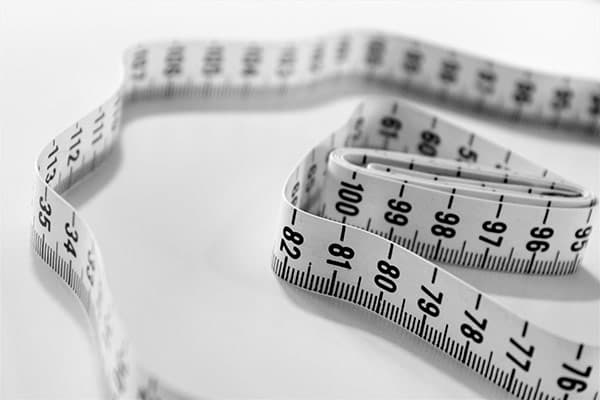Your Body Mass Index (BMI) is:
Table of Contents
What is BMI?
The BMI (Body Mass Index) is a measure of your body fat based on your weight in relation to your height. It's a good measure of how healthy your weight is and a useful guide to how much weight you should gain or lose.
The BMI is not perfect, as it doesn't differentiate between fat and muscle, but it's a useful guide for those who do not have access to professional advice. The body mass index is also used by doctors to grade the health of their patients.
Benefits of calculating BMI
Body mass index (BMI) is a measure of body fat based on height and weight that applies to adult men and women. BMI is a fairly reliable indicator of body fatness for most people. It does not measure body fat directly, but rather estimates a person's body fat based on the ratio of their height to their weight.
If you are trying to lose weight and reduce your body mass index, then increasing your physical activity throughout the day is a good way to reach your ideal weight.
Medical advice from health professionals suggests that individuals who have a high body fat percentage are at an increased risk of getting type 2 diabetes.
How do I calculate my BMI?
Simply use the online BMI calculator to add your weight and height in kg. The calculator will give you a bmi test result, which consists of a number and weight category based on the values that you enter.
Body Mass Index (BMI) is a measurement of body fat. The bmi test was created to help determine if a person is overweight, obese or underweight and is used by doctors to assess a person's risk for certain diseases.
The calculator estimates your BMI and body fat percentage. You can then compare your BMI to other people of the same age and gender. If you are concerned with your weight, you can also use the BMI calculator to help you reach a healthy weight for your height.

How to use a Body Mass Index Calculator
A body mass index is a simple measurement of the relationship between your height and weight. It can help you see if you have a healthy weight for your height, or whether you might be underweight, overweight, or obese. Health experts often use BMI to see if you may have a high risk for health problems like heart disease, high blood pressure, or diabetes.
BMI is a tool to see if you might need to lose or gain weight. You can find your BMI by using a BMI calculator. Be sure to talk with your doctor about your BMI and the best course of action for you. Your doctor can help you decide if losing or gaining some weight would be good for your health.
To use the BMI calculator on this page, simply enter your weight and height and the bmi calculator will do the rest. Discover your weight category and BMI number.
Why you should use a BMI Calculator
A BMI (Body Mass Index) calculator is a tool that you need to use if you are interested in maintaining a healthy weight and a healthy body. ou will find that a BMI calculator is a very useful tool -- especially if you are a woman between the ages of 18 and 30.
Women are much more likely to gain weight than men. That is why it is so important for them to be able to use a BMI calculator. It is a useful tool that can be used to determine your body fat percentage. It compares your height and weight -- and this is particularly useful for anyone who is trying to lose weight.
Body mass index is a reliable way to determine if you are a healthy weight for your height. The free BMI calculator online makes very easy to see your healthy weight based on your height.
What is a normal BMI?
BMI stands for body mass index. This measurement is a good gauge for measuring your body fat and general health. The BMI formula is weight divided by height squared. The measurement ranges from underweight to obese. It is a good measure to determine if you are at a healthy weight.
A BMI of 18.5 to 24.9 is normal and considered to be a healthy weight. A BMI of 25 to 29.9 is considered overweight. A BMI of 30 or greater is described as obese and is generally a sign that the person should improve increase their exercise, improve their diet and reduce fatty foods to decrease their body fat percentage. If you fall below a BMI of 18.5 then you are considered to be too skinny.
Generally a BMI value in the low 20s is a good and healthy weight range. You can use bmi tables to compare your result and see if you have a healthy body fat ratio.
How does body mass index work?
It is a measure of body fat. Body Mass Index (BMI) is a measurement used to estimate body fat on a person based on their height and weight. BMI is used as an indicator of body fatness for population screening, in large-scale health surveys and clinical settings. BMI is also used to screen for weight categories that may lead to health problems.
An alternative to calculating body fat is to use the waist to height ratio. This requires measuring your waist and your height. Then you should divide the waist by the height (W / H). A healthy waist to height ratio is between 0.4 and 0.49.
What is the BMI formula?
The BMI formula is a simple height to weight ratio that is used to find out if a person is overweight. It is also sometimes called the Quetelet index. It was a Belgian mathematician that created the BMI formula.
In the 19th century, he was looking for a way to compare the weight of people to their height so that he could see if people were in the healthy weight range. However, this was not all that he did. He actually created this formula to stop people from using their body as a way to measure health.
What is my BMI?
Almost everyone knows what their body mass index (BMI) is, or at least if they're over- or underweight. But how many people know what their BMI actually means?
Even though BMI is the most widely used measure of obesity, it's not the most useful. That's why we created a BMI calculator like no other. Not only does it calculate your BMI, it also explains what it means and it shows you how to improve it. It's an easy way to learn more about your body and your health.
Should I lose body fat before building muscle?
The answer is yes. The reason is: if you don't lose fat before you start building muscle, you will be adding fat to the areas where you are adding muscle. However, once you have lost the fat, you will be able to add muscle to the areas where you want it more efficiently. It's a matter of fat distribution.
While you might gain an inch or two around your arms through muscle building, you might gain 4 inches around your waistline if you don't decrease your fat levels first. So the answer is yes, you should lose fat before you start building muscle.
Losing fat may sound simple enough, but it can be a difficult task for people who are overweight. The key to losing fat is to create a calorie deficit by eating less and exercising more. It can be difficult for one who is overweight to start a weight loss program. They may be worried about exercise hurting their joints or that they won't be able to keep up with the exercise once they become more fit.
However, women who are overweight can begin by adding small amounts of exercise into their daily routine. They can choose activities they enjoy, such as walking around a mall or a local park. They can also start by adding a few minutes of exercise each day.
Can I calculate body fat using a BMI test?
Body mass index (BMI) is a method of measuring body fat content based on an individual's weight and height. While BMI does not actually measure the percentage of body fat, it is used to estimate a healthy weight based on a person's height.
Since BMI is based on weight and height, it may be a poor indicator of body fatness for people who have a muscular build, such as athletes.

What body fat percentage to see abs?
Anyone who has had a weight loss goal knows that the biggest obstacle standing in the way is simply your body fat percentage. For many people, the number on the scale just doesn't go down until they get lean enough to see their abs.
At this point, the weight loss becomes much easier. You'll have a ton of energy, and your clothes will fit better. But what if you want to know your body fat percentage before you get to that point? Understanding body fat percentage is an important part of healthy living.
To see your abs, or body fat percentage, you need to have a low body fat percentage - a body fat percentage of 10 - 12% for men and 14 - 17% for women. You should also have lean muscle to show the abs, not just fat. This is why it's important to train your body for lean muscle, rather than just fat loss.
FAQS
Body Mass Index (BMI) is a measurement that assesses the relationship between a person's weight and height. It is commonly used to categorize individuals into different weight status categories, such as underweight, normal weight, overweight, and obesity.
BMI is calculated by dividing a person's weight in kilograms by the square of their height in meters. The formula is BMI = weight(kg) / (height(m))^2.
- Underweight: BMI less than 18.5
- Normal weight: BMI 18.5 - 24.9
- Overweight: BMI 25 - 29.9
- Obesity: BMI 30 or greater
BMI provides a useful general assessment of weight status for most individuals. However, it does not differentiate between weight from fat and weight from muscle. Therefore, for some athletes or individuals with high muscle mass, BMI may not accurately reflect their health status.
No, BMI should be used as a starting point for assessing weight status. It is important to consider other factors like waist circumference, muscle mass, and overall lifestyle habits for a comprehensive view of health.
For the BMI calculation, weight should be in kilograms (kg) and height should be in meters (m). If your weight is in pounds (lbs) or your height is in inches (in), you can use conversion factors to get the appropriate units.